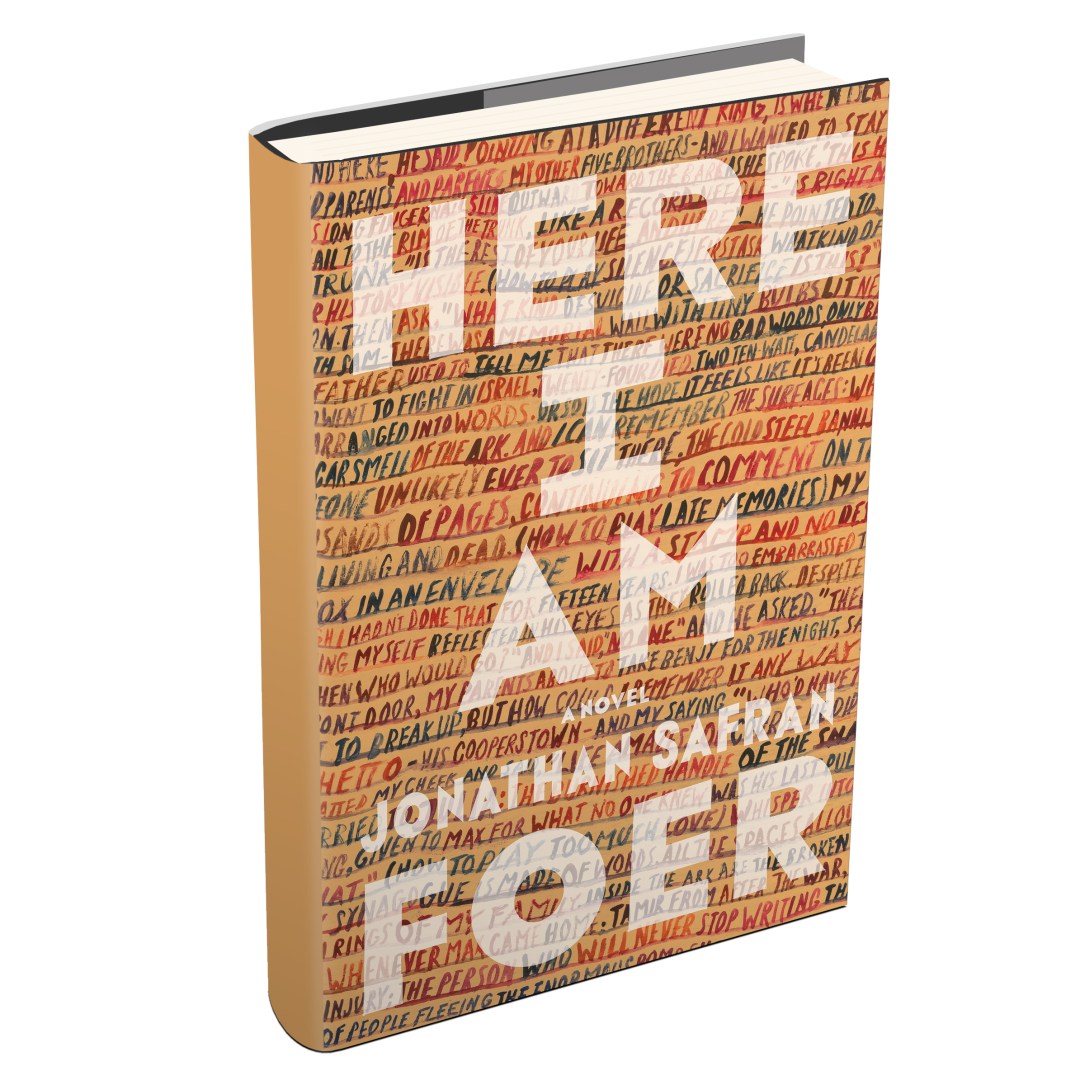In this series: Becoming a Welcoming Church
Most of us understand hospitality when it comes to inviting people over to our homes. We roll out the metaphorical red carpet by doing a deep clean, preparing snacks, and attending to the comfort of our guests. But more than that, we open ourselves and focus our complete attention on visitors, doing everything we can to make our home feel like theirs.
Hospitality in your church should look similar. However you actually greet guestswith a coffee station, trained greeters, or gift bagsthe key is to open your community to people by making your church home feel like theirs and initiating a relationship that will hopefully extend for years to come. The articles below will help you consider how to make your church more welcoming. It's one way of living out Pauls instruction in Ephesians 5: making the most of every opportunity, because the days are evil.
We rarely need excuses to read novels as autobiographical. It's easier, after all, to believe that whatever in a fiction smacks of truth—the way a marriage's arguments skip and warp, for example, or the lesson that we pay for being known in the coin of embarrassment—must borrow from some ready-to-hand reality.
Jonathan Safran Foer has never been shy about the fact that his fictions borrow material from his life. Consider the central character in his debut novel, Everything Is Illuminated (2002): he is named Jonathan Safran Foer. Moreover, the two Foers' stories are recognizably similar, if simply in the way that any two triangles, say, are recognizable as having the same shape.
Foer's long-awaited new novel, Here I Am, will also provide readers eager for them parallels between the author's fiction and his life. It autopsies, for instance, Jacob and Julia Bloch's once-happy marriage. (Foer and Nicole Krauss divorced in 2014.) It eavesdrops on the couple's young sons, culturally Jewish and preternaturally insightful—prodding at the chinks in their precocity and finding naïveté, prodding at chinks in their self-consciousness and finding resilience. (Foer is the middle child of Jewish parents, and his two brothers are, like him, brilliant.) It even points back to the deforming and formative injury the eldest, almost bar-mitzvahed Bloch son suffered as a much younger child. (Foer, at eight, was hurt in—and traumatized by—a classroom chemistry experiment gone wrong.)
To these parallels we could add the example of Here I Am's most prominent character, Jacob Bloch. In the aftermath of his grandfather's funeral, wandering through an unpopular quarter of the Jewish cemetery, Jacob resolves "to remember all of it, to use it all later: the rabbi's shoelaces, the untied melodies of grief, the hardened footprints of a visitor in the rain. It was his blessing and his curse," Foer writes of his character, a TV writer. "Everything was always material." Which seems like reason enough to assume that the novelist has cribbed from his life, as well.
It would, however, be a mistake to read Here I Am primarily for its autobiographical tracery—and not just because this book relies on a completely imaginary if utterly devastating earthquake to catalyze its plot. And not primarily on principle, either. (True, as a matter of principle, I do object to the idea that a virgin can't make characters make love, that a real mechanic can't put plausible words into a fictional aristocrat's mouth. Or vice-versa. I also object to the idea that writers owe readers any more by way of plot than the plots they choose to print.)
Nonetheless: all those objections to one side, I would first argue that whatever Foer has pirated from his own story in order to write this novel is inconsequential. Because despite the spectacle of a catastrophic earthquake in the Middle East and the moving pageant of a family foundering, this beautifully plotted book is not just about its plot (or even—and this is its peculiarity—just about what its plot means). It is a book equally about its own unrealized counterplots and about what those unrealized narratives would have meant. And do mean, even as they remain unconsummated.
Here I Am is not, in other words, just about what happens, about who acts and who bears the brunt of things, about which conversations signal endings and which signal beginnings. Yes, it contains all of that. It is also, however, a book about what could have happened; about who might have second-guessed themselves and who might not have delayed so long; about which unsaid words, substituted for silence or euphemism, would have added to the longevity of a relationship or, perhaps, curtailed it.
More simply still: Here I Am tells a story, and it lays out that story's counter-narrative, its "otherwise."
Take Jacob and Julia Bloch's divorce. It is, as divorces go, amicable, and it is, because divorces are, brutal. Foer's devoted fans will find it hard not to speculate: does the end of the Blochs' fictional marriage resemble the end of the writer's real marriage? Maybe. Maybe not. But that question lies well beside the point, and here's why: Here I Am doesn't just lavish proportional and convincing details on the story it tells; it also spends attentiveness on the story it might have told.
So that, for instance, when Jacob and Julia revisit an inn where they stopped for a night early in their marriage, Foer sets out their dialogue—fond, funny, weary—but he simultaneously drafts a hypothetical conversation for them, the conversation the two could have had "if they'd said what they were thinking." It concludes this way: "But he didn't say anything, and neither did she… . All communication had become subterranean: shifting tectonics, felt on the surface, but not known."
Well, scads of novelists before Foer have known how, quietly and cleverly, to betray their characters' "subterranean" communiqués: how to signal curbed desire, seemly alarm, furtive grief, and so on. Foer, however, goes further. He transcribes the unsaid words that thicken the couple's silences and cheapen their banter. That is, between the actual pieces of Jacob and Julia's dialogue, Foer writes them an otherwise.
The characters themselves apprehend no more of this otherwise than a few of their own would have said's. The book hints, though, that if had they known more, the Blochs would have been braver. Or have had less need of courage. "They'd [have] said what they were thinking." But between the pieces of their story as they know it lies all that "occlude[s …] such bravery":
wrong words, absences of words, imposed quiet, plausibly deniable attacks on known vulnerabilities, mentions of things that needn't be mentioned, misunderstandings and accidents, moments of weakness, tiny acts of shitty retribution for tiny acts of shitty retribution for tiny acts of shitty retribution for an original offense no one could remember.
Foer, then, recounts the story of a marriage folding, a plot with a not unfamiliar shape. At the same time, though, he writes another, not-to-be-realized version of the couple's story, a version of their story that both of them remain too staid or scared to imagine, and he lays it in spitting distance of the version that will be realized. Moreover, he names all the crud that accrues even when people love one another—enough of it to wed a couple to the not-quite-inevitable denouement of their marriage.
Nor does this novel stop at flagging the otherwise in which Jacob and Julia could have "said what they were thinking." Instead, it signposts the moment where Jacob does not dodge his Israeli cousin's unapologetic cross-questioning. For, just as this cousin, Tamir, pushes Jacob to reckon with his competing loyalties and competing betrayals—and to order the many selves he shuffles around behind the pronoun "I"—Foer writes:
Jacob almost said, Now you've lost me.
He almost said, I'm heading up.
He almost said, I don't agree with anything you've said, but I understand you.
…
But instead, Jacob asked, "You want another beer?"
All told, Here I Am is about what happens and about what could have happened. It is about the otherwise, and it is about the "but instead." This is what makes the book unusual, to put it mildly. There are few novels about the otherwise and the "but instead"—and fewer still that avoid devolving into experimentalist noodling, on the one hand, or wistful schlock, on the other.
Indeed, here's one reason novelists rarely hazard books that, at once, tell a story and incarnate its alternates: to write a book like that is to strain even narrative omniscience. It's one thing, and a common thing, for an author to let a narrator in on his or her characters' inner lives. But Foer goes much further than that. He lets his narrator in on his characters' other lives. He gives his narrator access not just to his characters' secrets and self-justifications but also to the hypothetical plot in which they could have "sa[id] the hardest thing." In other words, he tasks his narrator with knowing his characters at the depth that God would know them.
The hazards of reaching for such omniscience are—predictably—significant. (As far as I know, the best outcome of hubris is being branded as a poser, and the lightest penalty for making readers claustrophobic is having to enjoy literary acclaim from the afterlife.) That said, on the off-chance that the risk pays off—that one can summon not only enough omniscience to realize a plot but also to pursue the not-to-be-realized stories ghosting it—the profit would speak for itself.
When it comes to Here I Am, Foer's profit does speak for itself. This book takes a handful of sympathetic characters and makes them forgivable. And maybe it will even take a crowd of sympathetic readers and make them quicker to have mercy. Or to ask for it.
Jane Zwart teaches literature and writing at Calvin College and, with co-director Jennifer Holberg, leads the newly launched Calvin Center for Faith and Writing.
Copyright © 2016 Books & Culture. Click for reprint information.















